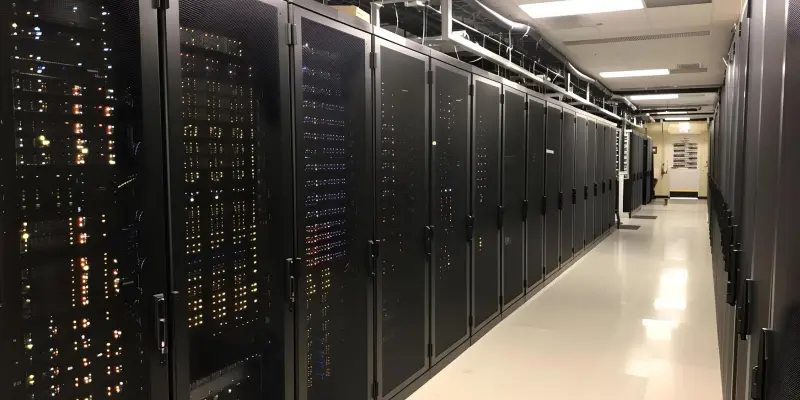In a significant technological leap, xMEMS Labs has unveiled its µCooling fan-on-a-chip technology for AI data centers. This innovation represents a stride forward in active thermal management solutions, adapting their established monolithic MEMS-based chip technology for high-demand environments. Initially developed with a focus on mobile devices, µCooling now extends its capabilities to achieve hyper-localized active cooling, addressing the thermal challenges prevalent in cutting-edge optical transceivers. Operating at 400G, 800G, and 1.6T data rates, this technology effectively targets smaller yet critical components. By resolving component-level thermal bottlenecks, particularly those that traditional cooling approaches fail to address, xMEMS delivers a transformative solution.
Addressing Thermal Bottlenecks in AI Data Centers
The µCooling system’s rigorously engineered design features a micro fan capable of removing up to 5W of localized heat, distinct for its silent operation and lack of vibration. Remarkably, it lowers the operating temperature of digital signal processors (DSPs) used in optical transceivers by more than 15%, while also reducing thermal resistance by over 20%. Such reductions are pivotal in supporting enhanced throughput and signal integrity, which are essential for maintaining optimal performance in AI data centers. This separation ensures that the optical components remain uncontaminated, preserving signal clarity even under rigorous operational demands. These advances come in response to the rapid scaling pressures faced by AI data center interconnects, where xMEMS’ µCooling demonstrates its ability to integrate efficient active cooling without risking optical performance degradation. The on-chip solution is positioned uniquely in the market, aligning with emerging expectations for high-density environments.
Growth Prospects and Market Implications
As data centers continue to increase in complexity and demand, market analysts forecast substantial growth in the optical connectivity sector, with a particular focus on 800G and 1.6T transceivers. Such growth is expected to continue at a robust 35% compound annual growth rate through 2028, indicating strong momentum towards higher connectivity capabilities. Amidst this evolution, xMEMS’ µCooling stands out as a critical component that caters to the evolving thermal management needs driven by higher performance and power requirements in AI module development. The piezoMEMS design, distinguished for eliminating mechanical wear, promises reliable, maintenance-free operation, thereby synthesizing well with high-performance, long-lasting systems. The company, founded in 2018, has consistently been at the forefront of semiconductor innovations, accumulating over 230 global patents, underscoring its pioneering contributions to solid-state MEMS technologies. This strategic expansion into advanced cooling solutions not only exemplifies xMEMS’ adaptability but also its commitment to delivering scalable solid-state thermal technologies across diverse electronic sectors, fortifying its vision for transformative market influence.
Future Considerations for xMEMS Technology
The µCooling system boasts a meticulously designed framework with a micro fan able to dissipate up to 5W of localized heat efficiently and quietly, devoid of vibrations. Impressively, it decreases the operating temperature of digital signal processors (DSPs) in optical transceivers by over 15%, while slashing thermal resistance by more than 20%. These improvements are crucial for bolstering throughput and maintaining signal integrity, which are vital for optimal AI data center performance. The system’s airflow channel is thermally linked to transceiver heat sources but is kept distinct from optical pathways, ensuring optical components remain uncontaminated and preserving signal clarity under heavy operational loads. These innovations respond to the rapid scaling needs of AI data center interconnects, demonstrating xMEMS’ µCooling’s capability to deliver effective active cooling without degrading optical performance. This on-chip solution stands out in the market, meeting emerging demands for high-density environments efficiently.

